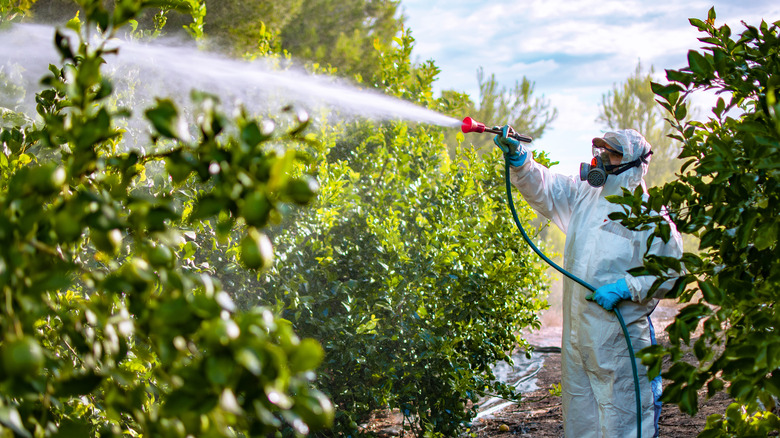The First Thing You Should Do After Pesticide Exposure
The World Health Organization (WHO) defines pesticides as chemical compounds that are used to kill undesirable insects, fungi, rodents, or plants. They play an important role in protecting human health because they can get rid of disease-carrying organisms and prevent crops from being destroyed. However, they can also have deleterious effects on any humans who might be exposed to large amounts of them.
The WHO states that most people are exposed to smaller amounts of pesticides through water and food, although these low levels of exposure are generally not a problem. The people who are at the greatest risk are agricultural workers who are in direct contact with pesticides and those within close proximity to their use.
It is possible for pesticides to enter the body, according to the Merck Manual, through swallowing, inhalation, or skin absorption. People who have been poisoned by a pesticide may exhibit symptoms such as tearing of the eyes, coughing, heart problems, and breathing difficulties, depending upon the specific pesticide that they were exposed to.
The Occupational Health and Safety Administration (OSHA) requires that anyone who works with pesticides should be supplied with a Material Safety Data Sheet outlining the hazards of working with that chemical and how to work with it safely. In particular, it is important that people who work with and around pesticides are aware of the steps to take if they, or someone around them, are exposed.
What to do if someone is exposed to a pesticide
The U.S. Environmental Protection Agency (EPA) recommends that if someone has been exposed to a pesticide and they are unconscious, having problems breathing, or having convulsions, your first step should be to call 911. If possible, have one person make the call while another provides first aid.
The EPA provides guidance about the treatment of specific pesticide exposures through its website. In general, however, first aid procedures will vary depending on how the exposure occurred. If the pesticide was swallowed, vomiting should not be induced unless you are instructed to do so by emergency personnel. Vomiting may do more harm than good. If pesticide exposure occurs in the eyes, hold your eyelids open and flush the eyes gently with clean water for at least 15 minutes. For skin exposures, all contaminated clothing should be removed and the skin should be cleaned with soap and plenty of water. In the event that the pesticide was inhaled, move quickly toward fresh air and loosen clothing.
Please note that you should not enter the area or attempt to give first aid unless you are able to do so safely. Use a respirator or other appropriate personal protective equipment to protect yourself from exposure. Wait for emergency personnel to assist you if you cannot safely get to the person.


